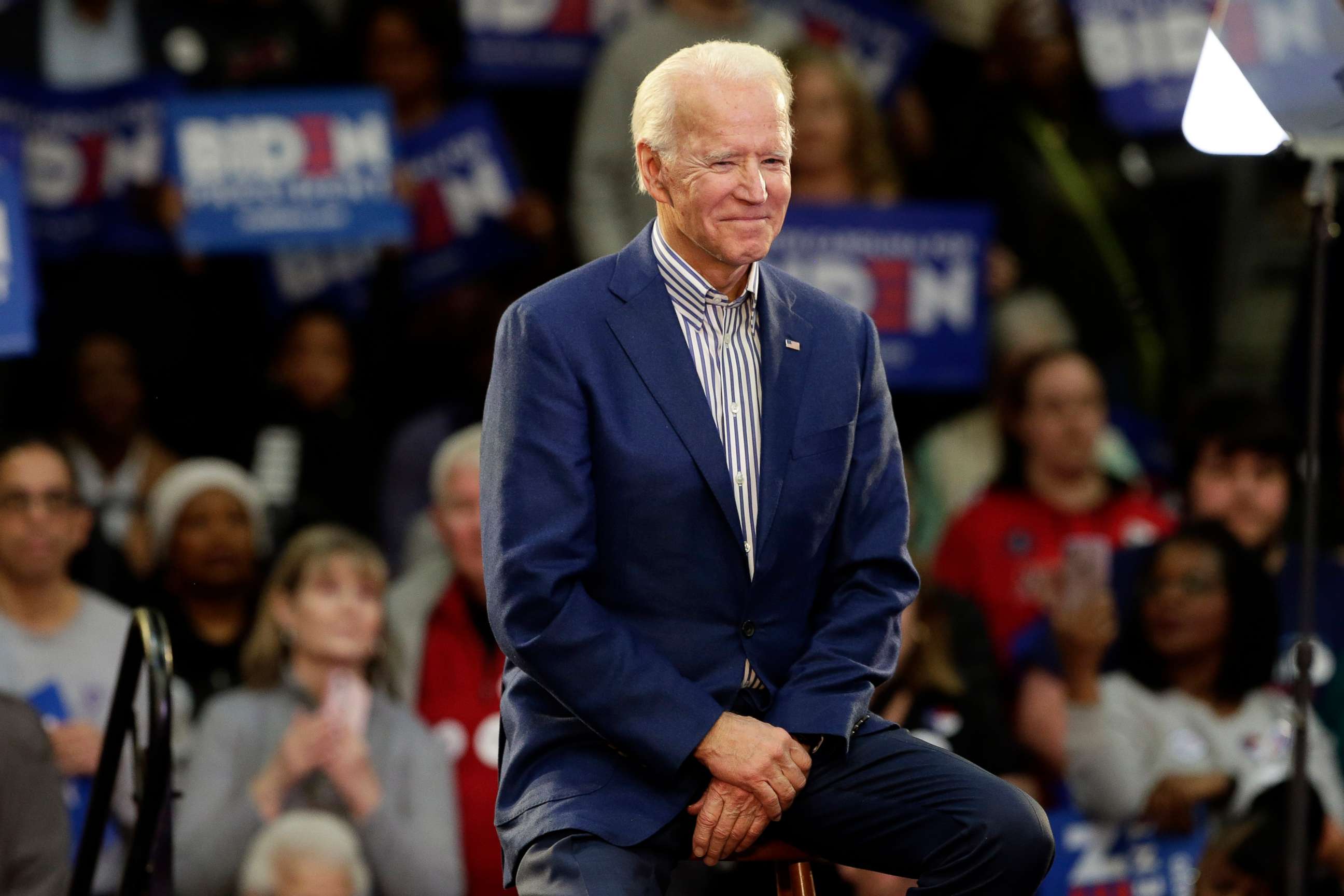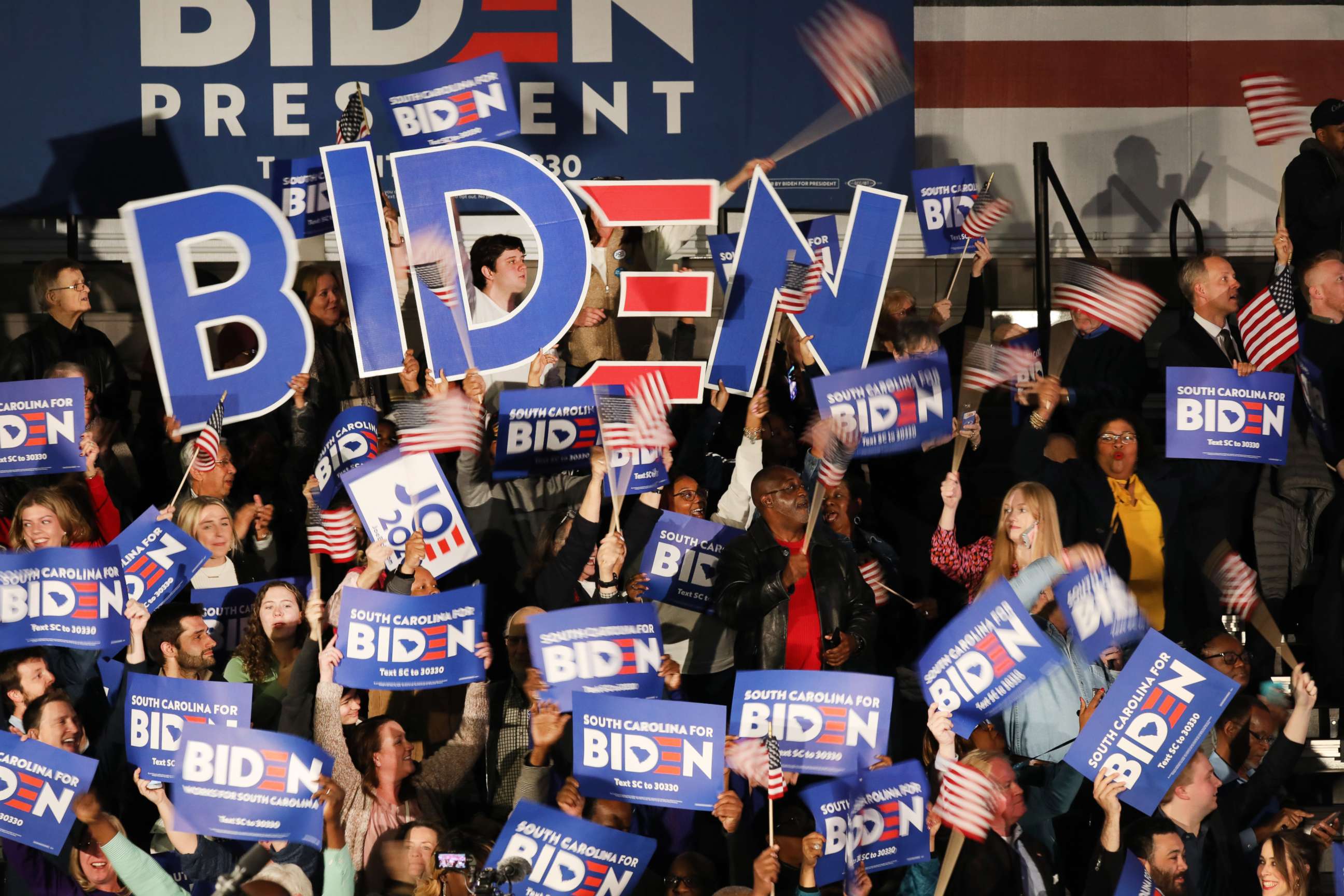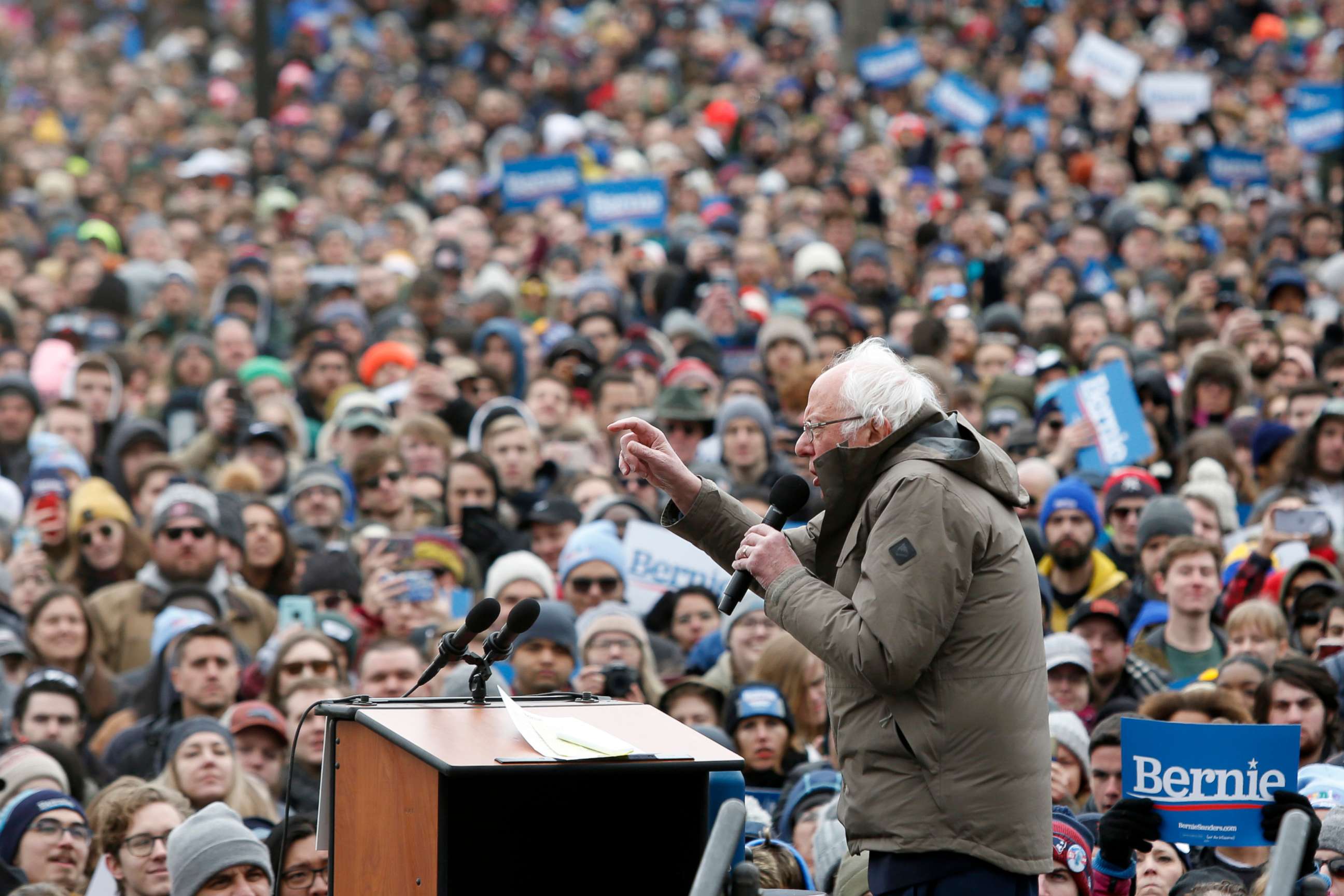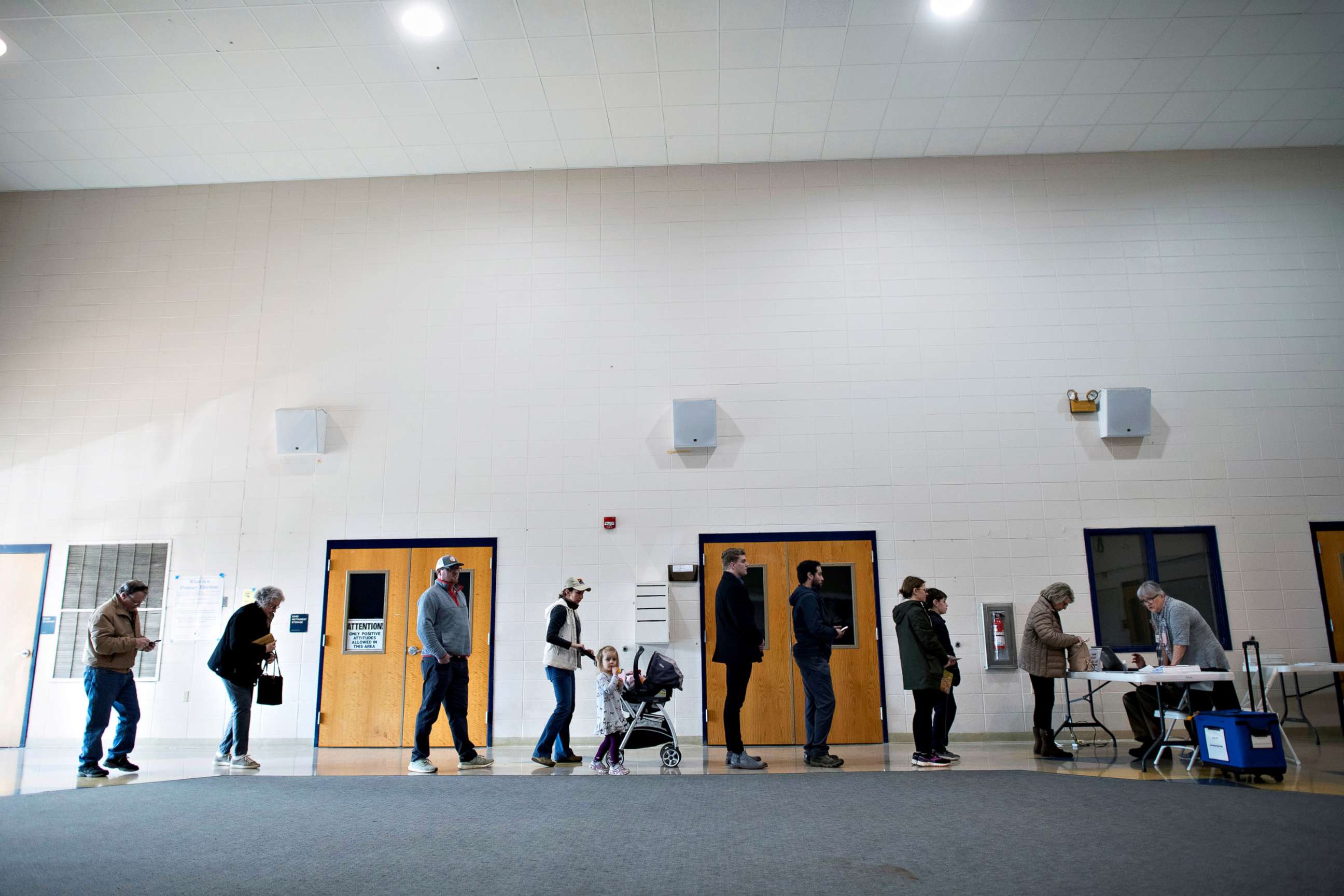Commanding Biden win in South Carolina resets and recasts primary race: ANALYSIS
It's the first primary victory of Biden's long political career.
Joe Biden is back and so is the Democratic primary race -- at least for a few more days, and very possibly for a few more months.
The first primary victory of Biden's long political career, dating back to his first run for president in 1988 and through a subsequent try in 2008, is an enormous one. It opens a new phase of the campaign, though on a compressed time frame, and with a field of candidates that's actually set to grow come Tuesday.
The former vice president's victory over Vermont Sen. Bernie Sanders and the rest of the field in South Carolina on Saturday was commanding. Exit polls show him demonstrating solid support across demographic, geographic and ideological groups -- with particular strength among black voters -- to power him to what will be by the far the biggest win of any candidate in the four states to have voted already this primary season.
"Most Americans don't want the promise of revolution," Biden said, to cheers in South Carolina. "They want more than promise, they want results."
If the win was big, so was the potential impact on the race. Biden sent a message with this victory -- about his candidacy's resiliency, Sanders' weaknesses among voters, and the potential durability of the Obama legacy in 2020.
"The full comeback comes in South Carolina," Biden said Saturday in North Carolina, one of 14 states that will vote on Super Tuesday.
It has the potential to put Biden on a forward path that has been traversed by candidates like former presidents Jimmy Carter, Bill Clinton, Barack Obama and former Secretary of State Hillary Clinton, in nomination fights past. Big margins among African American voters also have a history of leading to Democratic nominations.

What it all means, though, depends on what comes next; in ways Biden and Sanders -- who is still the Democratic frontrunner -- cannot totally control from here. The single biggest day of voting on the primary calendar is just three days away, and voting has been ongoing for weeks in many of those states.
Biden can expect a surge in media attention and campaign donations now. His campaign hopes that favorable demographics and longstanding relationships with political leaders can lead to wins or close-second finishes in a range of states including: North Carolina, Virginia, Alabama, Arkansas, Tennessee and Texas -- the second-biggest state voting on Tuesday.
They sent word that House Majority Whip James Clyburn -- whose endorsement of Biden was seen as influential by nearly half of South Carolina voters, according to exit polls -- will be headed to nearby North Carolina to rally black voters there on Sunday.
Former Virginia Gov. Terry McAuliffe, a former Democratic National Committee chairman and close friend to the Clintons, endorsed Biden on Saturday night, adding to the sense of establishment momentum behind his candidacy.
But Sanders remains far and away favorite to emerge from Super Tuesday as the big leader in the all-important delegate race. His lead in California alone could put significant distance between himself and his rivals.

Sanders pulled together two 10,000-person rallies in two different states on Saturday -- making a visual point about the enthusiasm his candidacy can generate.
"The only way we beat [President Donald] Trump is when we have the largest voter turnout in the history of this country," Sanders said Saturday afternoon in Northern Virginia, hours after holding another massive rally in Boston. "And you can't do that with the same-old, same-old boring type of politics."
There's nothing boring about the size of the Democratic field. For as big as Biden's South Carolina win was, the victory might have been more impressive if the field wasn't as crowded as it is.
The huge investments of time and cash in South Carolina by businessman Tom Steyer, in particular, probably held down Biden's numbers. The presence of other moderates, including Minnesota Sen. Amy Klobuchar and former South Bend, Indiana mayor Pete Buttigieg, might have splintered non-Sanders voters as well.

That dynamic figures to become more urgent come Super Tuesday, when billionaire Mike Bloomberg arrives on ballots nationwide, having already dropped more than half a billion dollars to spread the message of his campaign.
Still, Sanders lost out on a chance to answer his critics' questions in the Palmetto State. It was the first state to vote with a significant share of African Americans -- well more than half the primary electorate, according to preliminary exit polls -- and Biden beat Sanders among black voters by more than 40 points.
South Carolina seemed to confirm Biden's view of the Democratic Party in 2020. According to exit polls, slightly more than half of Democratic primary voters in South Carolina favored a return to former Obama-era policies, while barely a quarter said they want to move toward more liberal policies.
Biden got 60% of the vote among those who want a return to Obama administration policies. He also carried self-described liberals by double digits, and won easily among voters who said they had never before voted in a Democratic primary, according to exit polls.

Sanders carried voters under 45 by about seven points, in preliminary exit polls. But Biden blew away all of his rivals among those 45 and older, taking more than half of such voters -- quite an achievement in a seven-way race.
Biden will wake up a winner in his must-win state, having been counted out as politically wounded after poor showings in Iowa and New Hampshire.
This remains, though, a volatile race -- with plenty of candidates and plenty of potential storylines still running in a party that remains deeply conflicted about its own identity.




